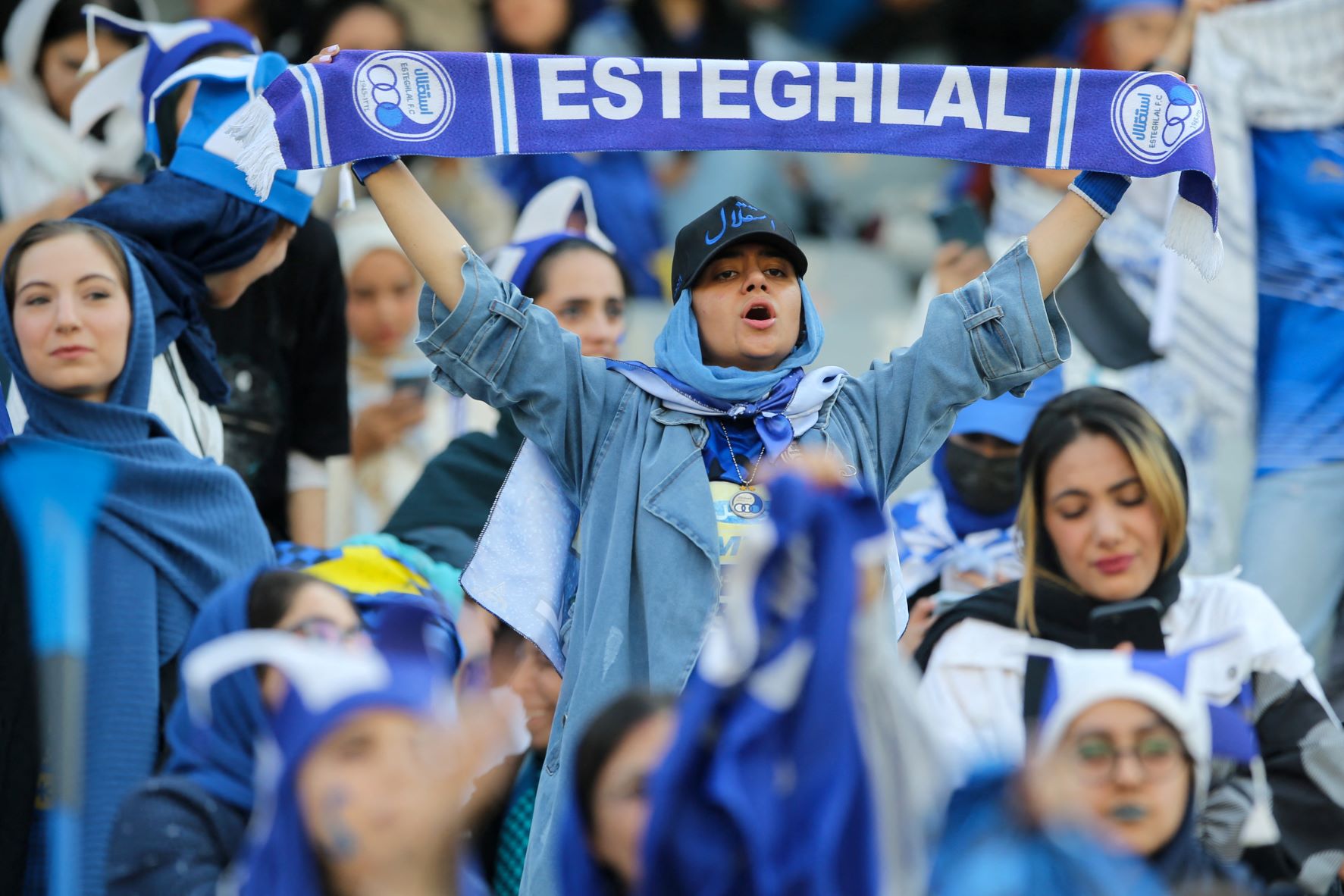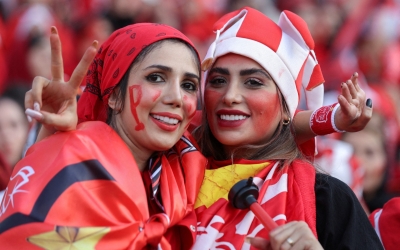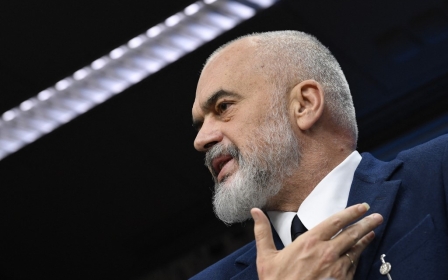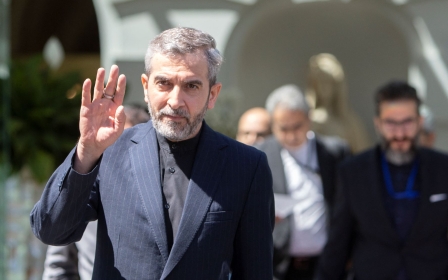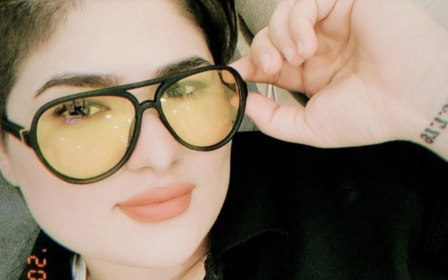Iran's conservatives feel betrayed after Raisi allows women into football stadiums
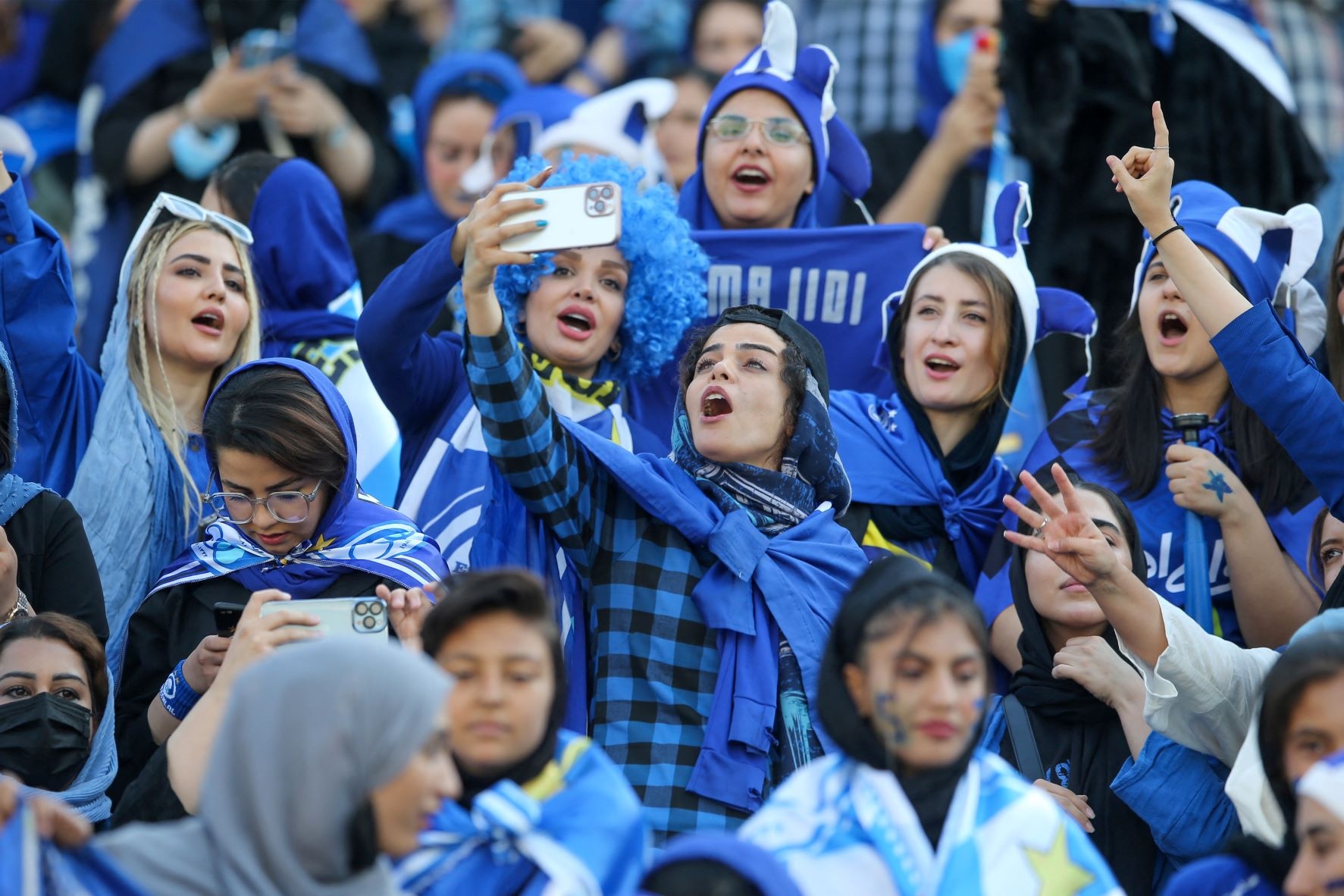
For many political and religious figures in Iran, the election of Ebrahim Raisi as president in August 2021 was meant to herald a return to conservatism in the country after a supposedly ill-fated attempt at reform under his predecessor, Hassan Rouhani.
That's why the decision last month to allow Iranian women to enter football stadiums, for the first time since the 1979 revolution, to watch local games has dismayed and angered a number of conservatives, who see it as a betrayal of their values.
'If this had happened during the presidency of the moderate Hassan Rouhani, principalist would have burned the country to the ground'
- Sports journalist
"I was shocked when I heard Raisi has allowed women into stadiums. If this was done by Rouhani, I wouldn't have been surprised as this was his electoral promise and an issue that secular reformists had always sought," a member of the principalist Basij paramilitary told Middle East Eye on condition of anonymity.
The decision was not an easy one, with Iranian officials aware that the move would risk disappointing many of their supporters.
However, they also faced increasing pressure, not just from female football fans but also from football governing body Fifa, which was under pressure to suspend Iran from the 2022 World Cup over the country's policy on women spectators.
New MEE newsletter: Jerusalem Dispatch
Sign up to get the latest insights and analysis on Israel-Palestine, alongside Turkey Unpacked and other MEE newsletters
The issue has been long debated in the country, and, though the government claims its decision was unrelated to Fifa, to have been suspended from the organisation just months ahead of the World Cup would have been embarrassing.
"I have no doubt that if it wasn't for Fifa threats, women wouldn't have been allowed to enter stadiums," said a sports journalist in Iran, on condition of anonymity.
"But if this had happened during the presidency of the moderate Hassan Rouhani, principalists would have burned the country to the ground. But now that all the power branches are under their control, they have silenced the clerics and influential institutions."
A victory for women
For Iranian women, the right to be able to go inside stadiums and clap for and support their teams has long been a dream. But the issue has long been contentious in a country where women face many legal and social restrictions on their personal lives.
The first attempt to change the law happened during the presidency of Mahmoud Ahmadinejad, who was in power from 2005 to 2012. Although Ahmadinejad was seen as a conservative principalist by most, the president ordered the gates of stadiums to be opened to women.
Only the intervention of the clergy prevented the plans from being instituted, with an announcement by Supreme Leader Ayatollah Ali Khamenei opposing the move putting the matter to rest for the time being.
Then Rouhani, in power from 2013 to 2021, also sought to open the gates to women, but, in the end, women were only allowed into certain matches, and then only to watch Iran's national team and not local matches.
Challenging his opponents in 2018, Rouhani said: "They state that vulgar things are said in the football stadiums and it is not right for the women to be there. [I say that] if our men are saying things that are not appropriate, why must women pay the price?"
Like Ahmadinejad, Rouhani, who is also a cleric, faced sharp criticism and attacks from senior clerics, with principalist media launching an onslaught against the president in a bid to stop his plans.
So with both his predecessors thwarted, it came as a shock to many conservatives for Raisi to be the one who finally implemented the change.
In a tweet, Mohammad Hossein Rajabi, a principalist cleric who voted for Raisi in the 2021 race, said on 1 September that Muslim women's presence in stadiums was not an appropriate move.
Minou Aslani, the head of the women's branch of the Basij domestic security force, said that letting women into stadiums to "watch men's [football] is not among the priorities of people of Iran".
Aslani also pointed out that influential religious leader Ayatollah Naser Makarem Shirazi was among the grand ayatollahs who had declared the plan forbidden.
On the other side of the debate, a reformist news site accused the government of hypocrisy, writing that "the former critics of women's presence in stadiums have now gone silent".
It added that if Rouhani or former reformist president Mohammad Khatami had done this, the principalists would have come out in the streets to protest against their decision.
Conservative anger
Raisi's statements during the presidential election had led most to assume that he would continue the ban on women entering stadiums.
"Some people said that women should go to the stadium to watch men's matches, but does this solve the problem of women themselves?," Raisi asked during his presidential campaign.
'Raisi keeps disappointing his true supporters. First he advocated the JCPOA and resumed the talks with the US for its revival, and now he has allowed women to sit in stadiums'
- Basij member
However, months later, when the Raisi government allowed women once again to enter the stadium to watch a national match, principalist and influential groups and clerics asked him not to do so.
In January 2022, the powerful Society of Seminary Teachers of Qom, previously fervent supporters of Raisi, wrote a letter asking the president to stop his government's plan to let women into stadiums.
"Addressing such issues by [your government] has surprised the religious and revolutionary part of the society which are and has been your supporter," wrote the group's secretary.
The call went unheeded, apparently.
"Raisi keeps disappointing his true supporters. First he advocated the JCPOA [nuclear deal] and resumed the talks with the US for its revival, and now he has allowed women to sit in stadiums and close to men who mostly curse," said the Basij member, referring to Raisi's negotiations to re-enter the 2015 nuclear pact.
"Then what happens to our adherence to our beliefs?"
'A remarkable event'
Meanwhile, Fifa has urged Iran to allow female referees to officiate at men's football matches.
In reaction, a principalist user on Twitter, identified as Abdolreza Akbari, called the Iranian government officials "naive" for accepting the previous request of Fifa, implying it was just the beginning of a raft of liberalising reforms the body would demand.
For female football fans and reformist politicians, however, Raisi's decision is momentous, despite his conservative credentials.
"This is a remarkable event and a turning point, as the religious supporters of Raisi and the Islamic Republic establishment witnessed how they ignored their so-called values just to fulfill their interests," said a reformist politician, who asked his name not to be disclosed, speaking to MEE.
"For sure, this paradox has disappointed, shocked, and even damaged the loyalty of a remarkable percentage of their supporters in the religious class. This means supporters are losing faith which is a great danger for Raisi and the principalist camp.”
This article is available in French on Middle East Eye French edition.
Middle East Eye delivers independent and unrivalled coverage and analysis of the Middle East, North Africa and beyond. To learn more about republishing this content and the associated fees, please fill out this form. More about MEE can be found here.


